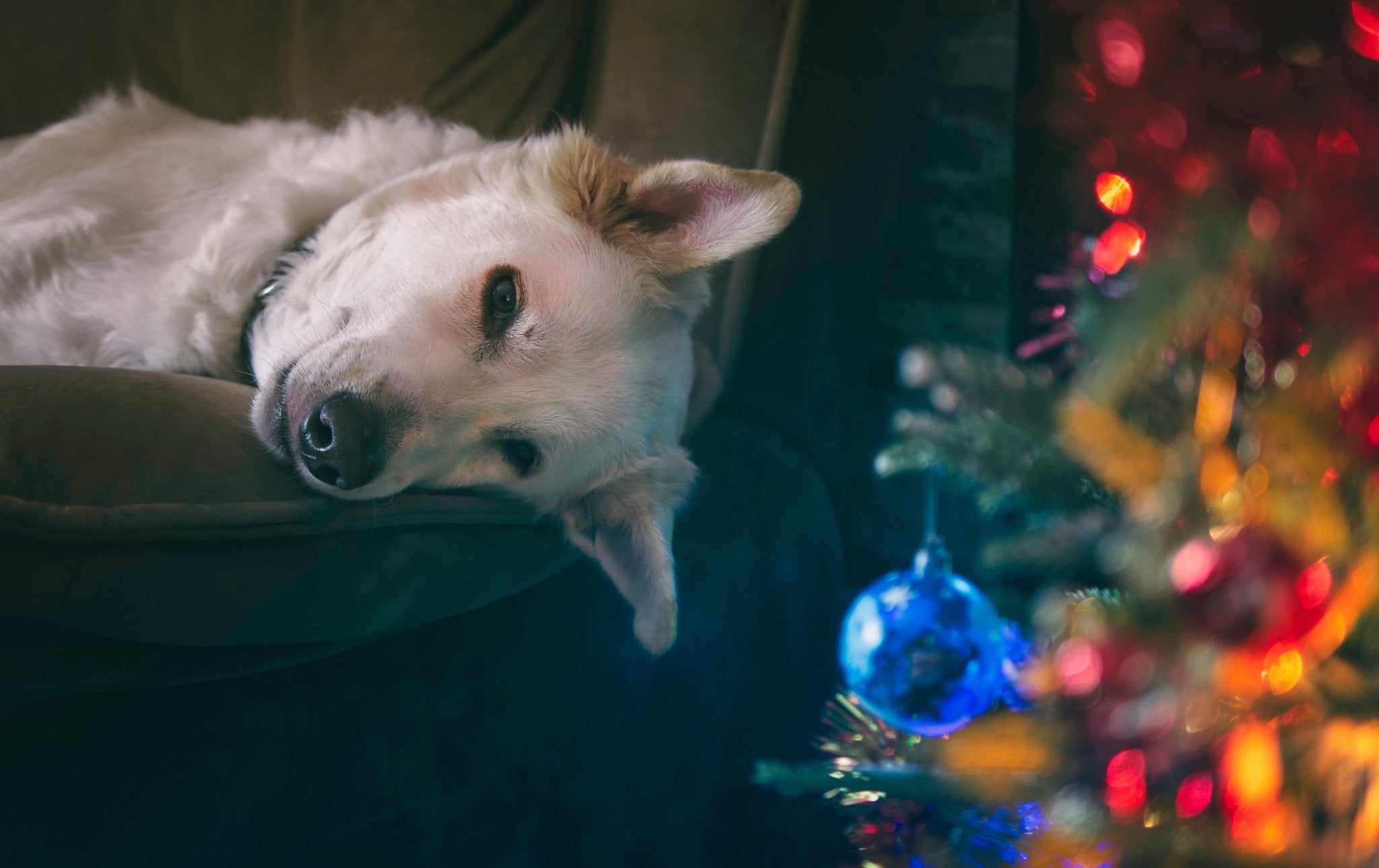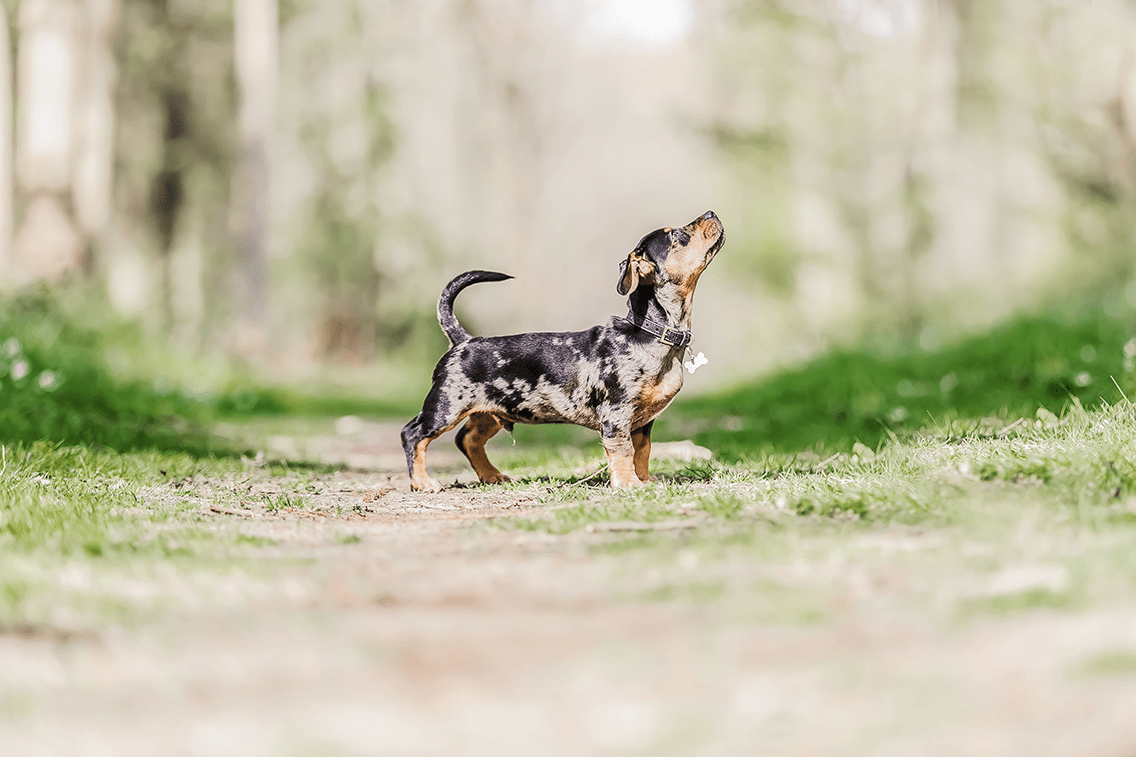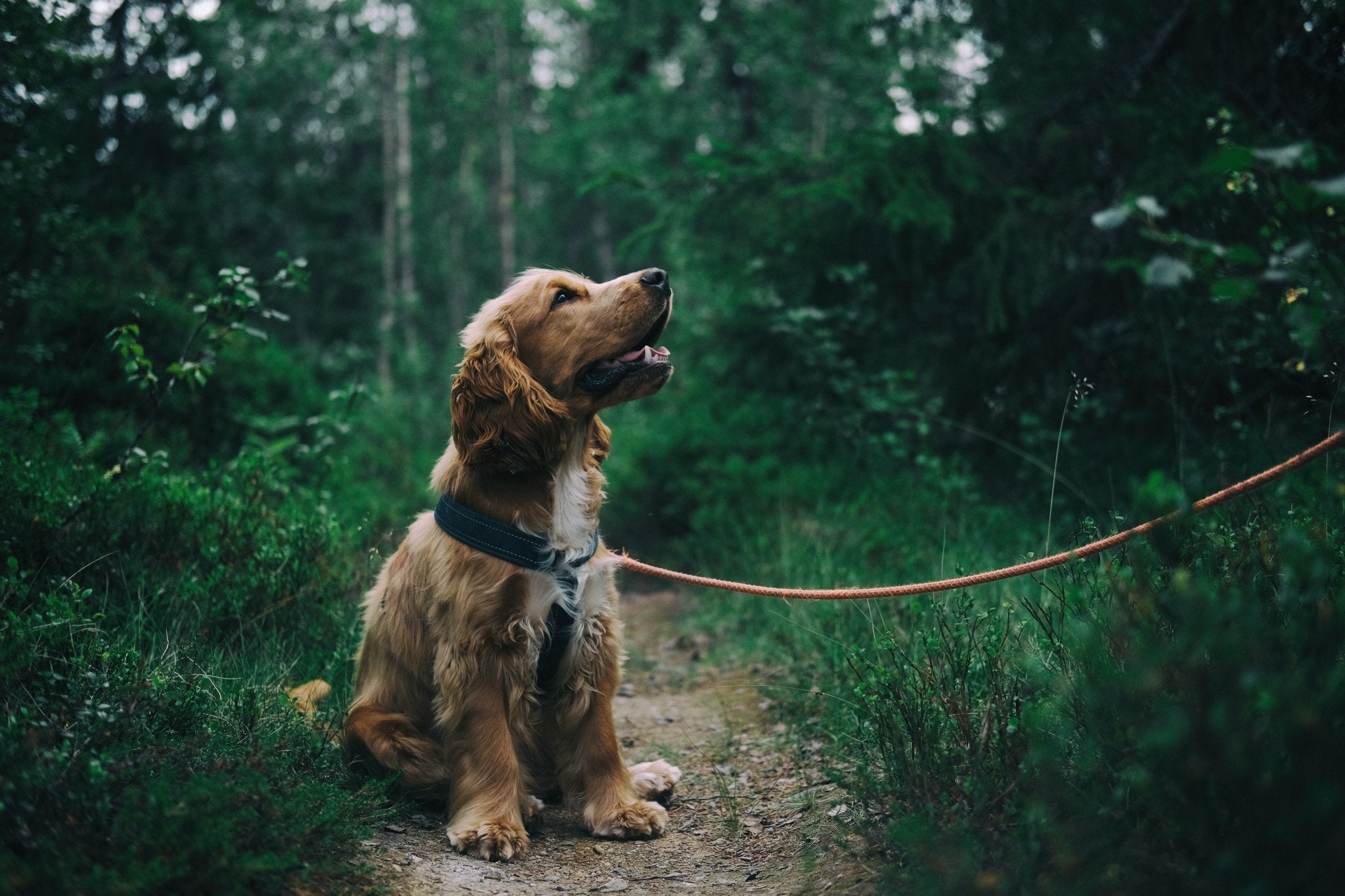
Cooking up a Christmas doggy dinner? Here’s what your dog can and can’t eat over the festive period
We all love the festive period and all the treats and traditions that come with the season. But no one should be left out of the festivities this Christmas, and that includes our dogs. And while it’s great to make the holidays special for your furry friend, it’s important that their health and wellbeing comes first.
In this guide, we’ll advise you of the Christmas treats that your dog should avoid at all costs, as well as some that could make an appearance in your dog's bowl on December 25th.
Avoid any sweet treats
We’ve all heard that chocolate is a no-go for our canine pals, but there are a lot of sweet treats around at Christmas, so it’s worth starting with this one. Chocolate is poisonous to dogs and cats as it contains a substance called theobromine. The severity of the chocolate poisoning depends on the amount and type of chocolate, with darker chocolate containing higher amounts of theobromine and so carrying a larger risk to animals.
Signs of chocolate poisoning usually appear within 6 to 12 hours after consumption, and may last up to 72 hours.
The symptoms to look out for include:
- Vomiting
- Diarrhea
- Restlessness
- Increased urination
- Tremors
-
An elevated or abnormal heart rate
As we open our own advent calendars, it’s important we don’t share any chocolate with the dog (even if they’ve mastered the art of begging!). But thankfully, there are plenty of dog friendly advent calendars on the market nowadays, and you might even want to create your own using a selection of their favourite treats, like these healthy snacks from Scrumbles.

(Photo by Kostya Levit Naddubov from Pexels)
Be careful what you place in your dog’s stocking
Not even the Grinch would forget to get a gift for his dog, Max, and so it goes without saying that we might want to spoil our pet around this time of year too.
But beware of the cheaper rawhide dog treats that are sold as Christmas gifts - they can be very dangerous for your dog. While it’s good to help your dog keep their teeth clean and promote oral health, there are plenty of better treats we can offer our pet than rawhide.
Rawhide is only intended for dogs to chew on, and if they accidentally swallow the tasty snack, it can cause blockages in their gastrointestinal tract, which can cause digestive problems leading to vomiting and diarrhoea.
Instead, you may want to fill your dog’s stocking with lots of toys and treats that don’t pose such a risk, including natural deer antlers that can occupy even the biggest chewers for weeks!
Make a pup-friendly Christmas dinner
Ever fancied making your dog a Christmas dinner alongside your own? If this is something you’d like to try, make sure to avoid:
- Cooked bones from the meat
- Anything cooked in oil, fat or butter
- Pigs in blankets
- Potatoes
- Turkey or chicken skin
- Anything containing onion, garlic or leeks.
Instead, make your dog a healthy dinner containing:
- Boiled carrots, parsnips, sprouts, broccoli, spinach, peas or green beans
- Raw carrots
- Lean parts of white meat
- Carrot or swede mash, without butter, salt or onions.
You could even add nutritional supplements like nutritional yeast to give it a cheesy flavour (and a boost of important nutrients!)

Dog-friendly desserts
Some dogs will get their usual for Christmas dinner, and that’s okay. Perhaps you’ve planned a special dessert to brighten their day instead. Before feeding your pup any desserts, double check the ingredient information to see if it contains dairy, which isn’t toxic as such but can irritate doggy digestive systems, leading to gas and diarrhoea.
Another sweet treat that we mustn’t share with Fido over the holiday period is Christmas cake.
Traditionally, Christmas cakes contain sultanas or raisins, which like grapes, can all be potentially toxic to dogs. If ingested, they can cause gut problems and in serious cases, kidney failure.
Look out for dog friendly alternatives, like puppy fro-yos and ice creams. You can even make dog-friendly cakes using non-harmful ingredients. Due to the decadent nature of these treats, they should only be given as a rare treat for your dog in small amounts.
Cheese board anyone?
Finally, it wouldn’t be Christmas without a cheese board. Cheese is a common high value treat for dogs, however it should only be given in small portions and infrequently.
If you’re looking for a cheesy alternative to sprinkle over your dog’s dinner, try and get your hands on some nutritional yeast from your local health food store. Cheeses containing onion, garlic or a rich flavours are all common around Christmas but not something to be shared with dogs.
We hope that this guide provides you with some ideas of ways to treat your dog over Christmas, without risking their health.



Leave a comment
This site is protected by hCaptcha and the hCaptcha Privacy Policy and Terms of Service apply.